5 Best Non-Toxic Dish Soap for a Healthy Home
Primal Edge Health participates in the Amazon Services LLC Associates Program and other affiliate programs and therefore, may collect a share of sales or other compensation from the links on this page. This comes at no additional cost to you, and all the prices and availability are accurate at the time of publishing.
Is there such a thing as non-toxic dish soap? Shouldn’t dish soap, something that touches our food directly, be inherently non-toxic?
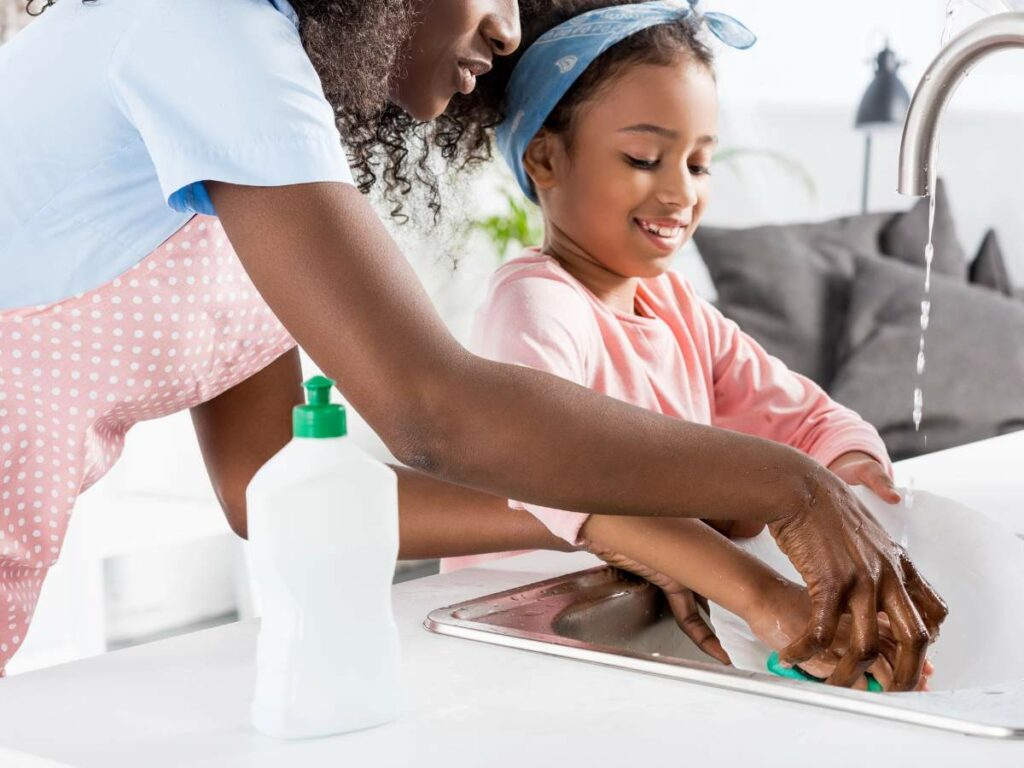
Unfortunately, dish detergents may contain harmful ingredients that can wreak havoc on your health and the environment. From skin irritation to respiratory problems, these materials can cause all sorts of issues, especially with prolonged exposure.
I used to think that all dish soap was safe to use, but not anymore. When you look into the research, you’ll see why being picky with the product you use is so important. So, in this article, we’ll talk about the potentially harmful ingredients in dish soap, what to look for instead, and the best non-toxic dish soap to try.
This post may contain affiliate link(s). As an Amazon Associate, I earn from qualifying purchases. See Disclosures.
Table of Contents (click to view)
Why Should You Pay Attention to Your Dish Soap?
Dish soap is a staple in almost every household, and it’s been around for so long that many of us don’t even question its safety. However, like any other store-bought cleaning product, dish soap may have hidden dangers that put your health and the environment at risk.
If you’re not using eco-friendly cleaning products, your dishwashing detergent may be doing more harm than good. Here are the two main reasons why we need to start paying more attention to the dish soap we use.
Some Dish Soap May Come with Health Risks
According to MADE SAFE, using dish soap with harsh chemicals like sodium lauryl sulfate (SLS) can lead to skin irritation, causing redness, itching, and dryness. Those with sensitive skin or conditions like eczema are particularly at risk.
Inhaling fumes from conventional dish soap, especially those with synthetic fragrances and dyes, can exacerbate respiratory conditions such as asthma. When left unaddressed, regular exposure to these chemicals can lead to chronic issues over time.
Certain compounds in dish soap, like triclosan and phthalates, are known endocrine disruptors that can interfere with hormone function, which can potentially lead to reproductive issues and developmental problems. Additionally, preservatives and fragrances can trigger allergic reactions, from mild skin rashes to severe respiratory distress, depending on an individual’s sensitivity.
Dish Soap Lingers in the Environment
When we rinse dishes, the soap doesn’t just disappear—it flows into our water systems and could eventually reach rivers, lakes, and oceans. According to the World Wide Fund for Nature (WWF), this journey introduces chemicals like surfactants and antibacterial agents, which can be toxic to aquatic life, disrupt delicate ecosystems, and harm marine organisms.
Additionally, persistent chemicals such as triclosan and phosphates linger in the environment. Sadly, this could possibly lead to long-term ecological damage and bioaccumulation in wildlife.
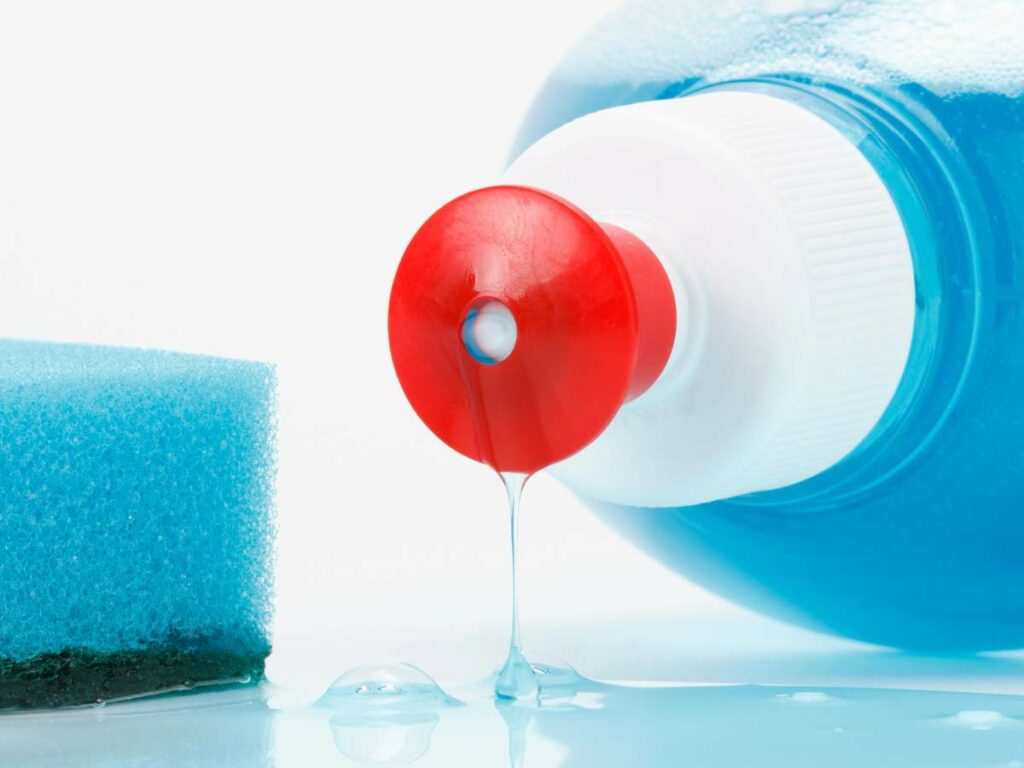
Harmful Ingredients in Dish Soap
Have you ever pored over the ingredient list on your dish soap? Yeah, me neither until I found out about the potential risks of common dish soap.
MADE SAFE provides a list of concerning ingredients in dish soap that every consumer should watch out for. These include but may not be limited to the following.
Sodium Lauryl Sulfate (SLS)
Sodium Lauryl Sulfate (SLS) is widely used for its powerful cleaning and foaming abilities. However, it can also be harsh on the skin, causing irritation, redness, and dryness. Those with sensitive skin or conditions like eczema should be particularly cautious. The same goes for sodium laureth sulfate (SLES). Both are derived from palm or coconut oil.
Unfortunately, SLS is a common ingredient in many consumer cleaning products. It’s not just dish soap, you can also find SLS in laundry detergent because it’s good at removing stains. So, I recommend using laundry detergent for sensitive skin, which contains no SLS or other harsh ingredients.
Triclosan
Triclosan is an antibacterial agent often found in dish soap as well as bar soap. While it effectively kills bacteria, it brings significant health and environmental concerns. According to Beyond Pesticides, this chemical can disrupt hormone function, potentially leading to reproductive and developmental issues.
What’s more, triclosan contributes to antibiotic resistance by promoting the survival of bacteria that can withstand its effects. This makes it harder to treat infections with standard antibiotics, which is a serious public health risk.
Phthalates
Phthalates are hidden dangers in many dish soaps, often lurking in synthetic fragrances. A study on the health effects of phthalates shows that these chemicals are endocrine disruptors, meaning they can mess with your hormone function and lead to serious health problems like reproductive toxicity and developmental issues.
But that’s not all—phthalates can also trigger allergic reactions. Ever noticed a mysterious skin rash or unexpected respiratory distress after washing dishes? Phthalates might be to blame. For those with sensitivities, these chemicals can worsen conditions like asthma, making it harder to breathe and leading to chronic respiratory problems.
Note that phthalates can also be present in laundry detergent, candles, and other products with synthetic scents. So, if you want to avoid this harmful chemical, opt for safer alternatives like non-toxic detergent and non-toxic candles.
Synthetic Dyes
Of course, dish soap isn’t naturally green, blue, or yellow. Companies add synthetic colorants to make the product more appealing on store shelves. Plus, color theory suggests that some colors can seem like like they “clean better,” such as green, which denotes the color of nature.
However, these artificial colorants are often made from petroleum-based chemicals that can cause skin irritation, allergies, and even disrupt the endocrine system, says MADE SAFE. For those with sensitive skin, synthetic dyes can lead to redness, itching, and rashes.
Certain dyes can also increase the risk of cancer. For example, Brilliant Blue #9 is a known carcinogen.
Synthetic dyes are also found in many fabric conditioners to make them look more appealing. That said, you might want to try fabric conditioners for sensitive skin that take care not to use these unnecessary ingredients.
Methylisothiazolinone
Methylisothiazolinone is a common preservative found in many dish soaps, designed to prevent microbial growth. While effective at preserving products, it has a dark side—this chemical is notorious for causing skin allergies and irritation.
The Environmental Protection Agency (EPA) expands on the risks of this preservative. According to their fact sheet for methylisothiazolinone, this ingredient has shown to be moderately to highly acutely toxic in dermal, oral, eye irritation, skin irritation, and inhalation.
In other words, exposure to this chemical can cause all sorts of havoc on your body. This is especially true if you’re constantly touching dish soap containing this preservative.
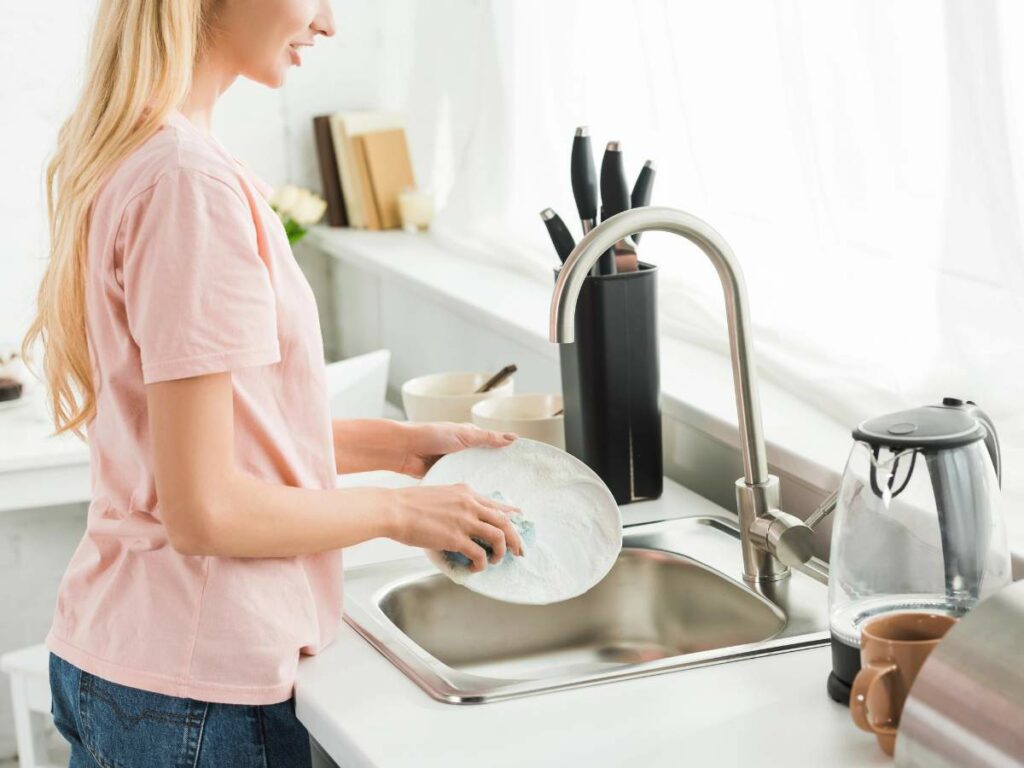
What to Look For in Non-Toxic Dish Soaps
I used to toss a common, mass-produced dish soap into my grocery cart and call it a day, but that was before I learned about the potential risks of harmful dish soap. All the things we’ve talked about above should be enough for you to look for non-toxic dish soap, too.
So, how can you find a truly non-toxic dish soap in a sea of common dish detergents? Here are some important things to look for.
Natural Ingredients
When it comes to choosing non-toxic dish soap, natural ingredients are the way to go. These elements not only clean effectively but are also gentle on your skin and eco-friendly.
For example, coconut oil provides excellent grease-cutting power, while olive oil nourishes and protects your hands. Essential oils add a refreshing, natural fragrance without the harmful effects of synthetic chemicals. Plus, natural ingredients are biodegradable, breaking down easily in the environment and helping to reduce pollution.
Free from Harsh Chemicals
Avoid dish soaps containing harmful chemicals such as sodium lauryl sulfate (SLS), triclosan, phthalates, formaldehyde releasers, synthetic fragrances, and dyes. As we’ve talked about, these substances can cause skin irritation, respiratory issues, and environmental damage.
Take the time to read the ingredient list. I know that some terms sound like a foreign language to most of us, so use the EPA’s Safer Chemical Ingredient List to do your due diligence.
Biodegradable and Eco-Friendly
Choosing biodegradable and eco-friendly dish soap is a simple way to minimize household chemical use while keeping your dishes sparkling clean. These soaps are designed to break down naturally, reducing pollution and potential contamination. Non-toxic options are free from harmful chemicals like phosphates, so they are less likely to disrupt delicate ecosystems.
Certain labels can tip you off on the quality. When shopping for dish soap, seek out labels that specify the product is biodegradable and eco-friendly, like the EPA’s Safer Choice label, EWG Certified, or Green Seal.
Fragrance-Free or Naturally Scented
Synthetic fragrances can be a mix of harmful chemicals, leading to allergies, skin irritation, and even hormonal disruptions. Naturally scented soap, however, uses essential oils to provide delightful aromas without these risks.
I highly recommend looking for dish soap labeled as fragrance-free or those using essential oils for scent, especially if you have skin sensitivities. The same goes if you are particularly sensitive to smell and can’t stand strong scents.
Transparent Labeling
Finally, transparent labeling is key when choosing non-toxic dish soap. It allows you to know exactly what ingredients are in your product and help you avoid harmful chemicals. With clear, honest labeling, you can make informed decisions that safeguard your health and the environment.
Green products are awesome at transparent labeling since they put consumers and the environment first. That said, you might want to prioritize brands known for being eco-friendly.
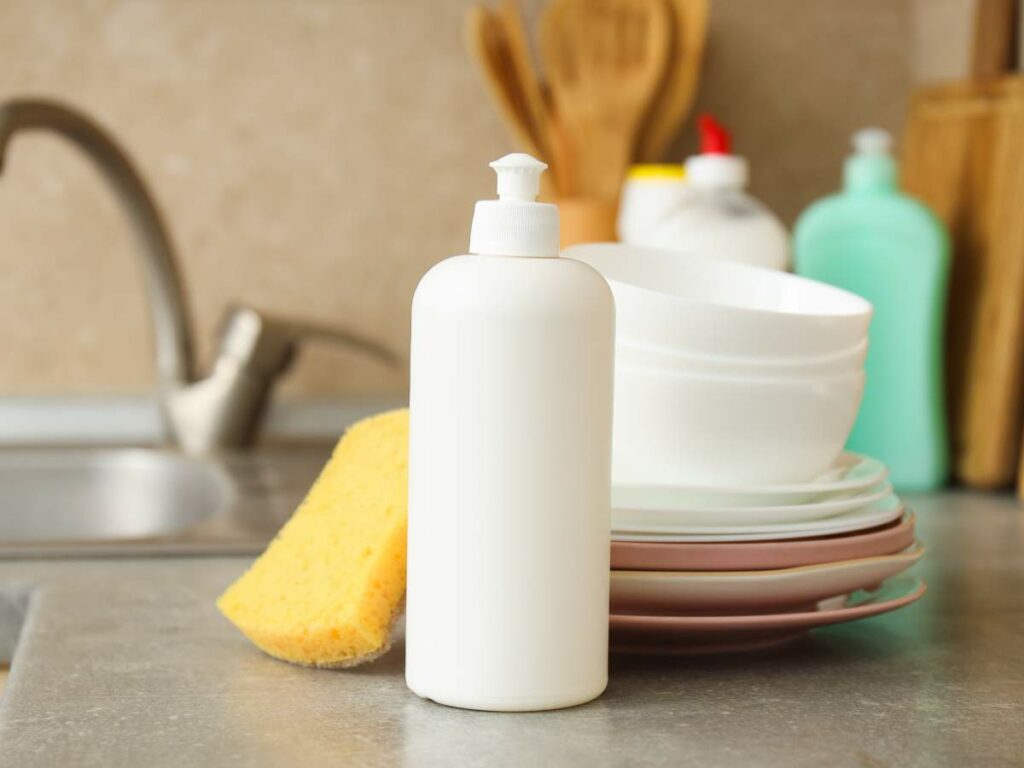
5 Best Non-Toxic Dish Soaps
Are you ready to make the switch to safer dish detergent? No need to go through a trial-and-error process with dozens of products. Here’s a list of my favorite non-toxic dish soap:
Molly’s Suds Natural Liquid Dish Soap
First up, we have the Natural Liquid Dish Soap from one of my favorite eco-friendly brands. This soap is unscented, making it perfect for anyone sensitive to fragrances.
It’s made from natural ingredients, so I don’t worry about harsh chemicals harming my skin or the environment. It cleans effectively, cutting through grease with ease, and rinses off without leaving any residue. Plus, it’s certified Cruelty-Free by Leaping Bunny.
Seventh Generation Dish Liquid Soap
If you have sensitive skin, let me point you to one of the best mild dish soap options from Seventh Generation. This soap is free and clear, meaning it has no dyes, fragrances, or triclosan.
Instead, it’s derived from plant-based ingredients, and despite its gentle formula, it effectively cuts through grease and leaves my dishes sparkling clean. Moreover, it’s USDA Certified Biobased.
Clean People Liquid Dish Soap
Want a dish soap that doesn’t smell like, well, soap? Try this fragrance-free Liquid Dish Soap from Clean People. This dish soap is made with plant-based ingredients so it’s gentle on my hands, but despite its mild formulation, it effectively tackles grease and grime.
They also offer this plant-based dish detergent in citrus clove and lemon if you prefer something a bit fragrant without being overpowering. Another positive note: the packaging is made from recycled material, which is perfect for those striving to go zero waste!
ECOS Dish Soap
Here’s another awesome option for all of you with sensitive skin: the Hypoallergenic Dish Soap from ECOS. Made from plant-based ingredients, it’s gentle on my hands and environmentally friendly. Plus, the naturally derived grapefruit scent is refreshing and makes dishwashing more enjoyable.
Another thing I love about this product is that a little goes a long way, so much so that I can dilute the soap, and you’ll still have a lot of suds on your sponge. It’s my favorite for washing huge pots and pans on top of my usual dishes. ECOS also emphasizes sustainability, with recyclable packaging and eco-friendly practices.
Puracy Dish Soap
Last but not least, we have Puracy Natural Dish Soap, a vegan and sulfate-free dishwashing liquid made from plant-based ingredients, making it gentle on hands and safe for the environment. Needless to say, it’s free from harsh chemicals like sulfates (SLS, SLES, SCS), triclosan, parabens, and petrochemicals.
Plus, it’s developed by doctors, which is a beacon for people with sensitive skin. You won’t have to worry about irritation, but you can still count on it to clean your dishes effectively.
Say Goodbye to Dangerous Dishwashing
Something as boring and routine as dishwashing shouldn’t pose harm to your health or the environment, but here we are. As consumers, we have to be vigilant about the cleaning products we bring into our homes until these big-name brands stop using dangerous ingredients.
Nevertheless, there are plenty of options out there for non-toxic dish soap. So whether you have sensitive skin or simply want to make your dishes safer to use, use this article as a guide to better alternatives!
Want more tips like this? Explore Primal Edge Health for other ways to make your home safer and healthier!
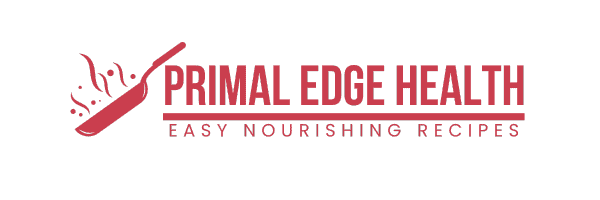
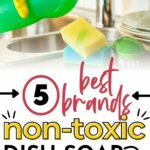

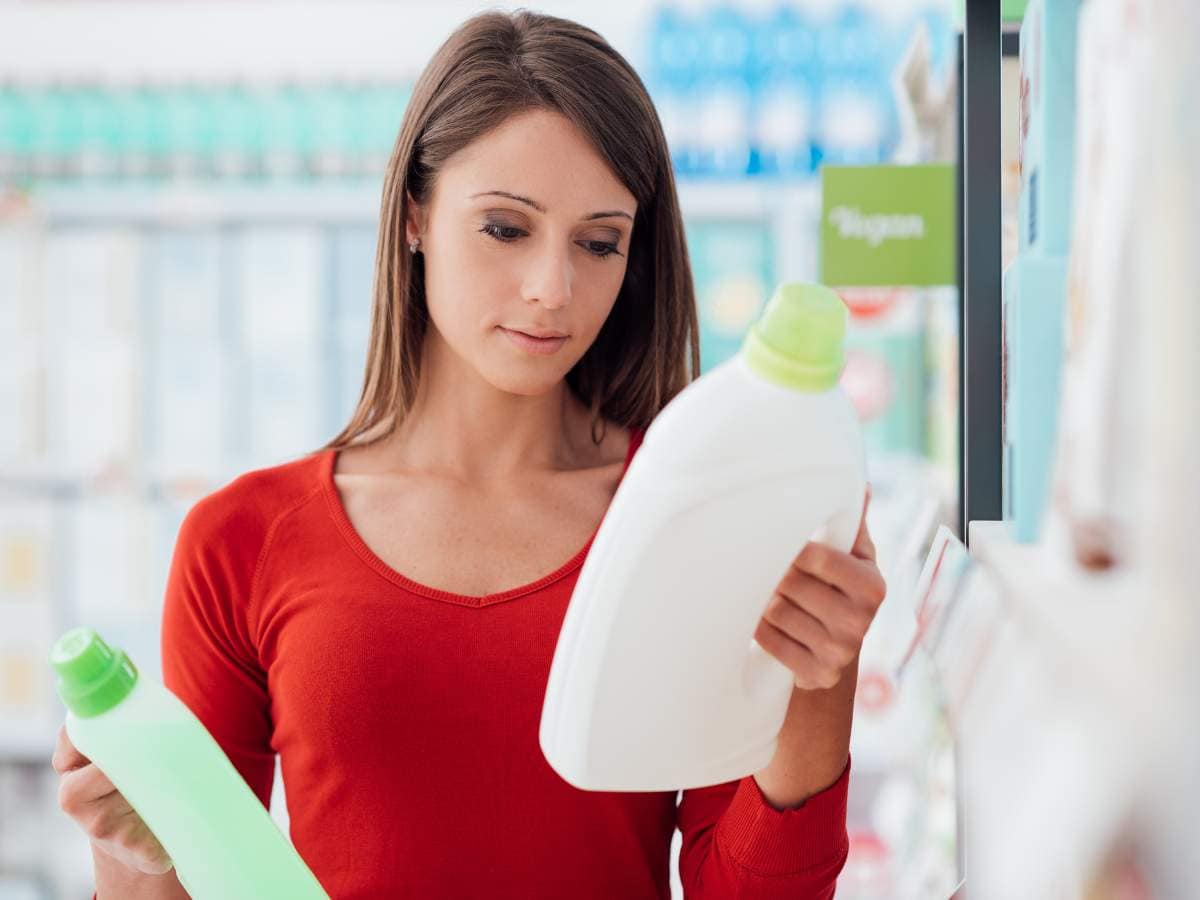
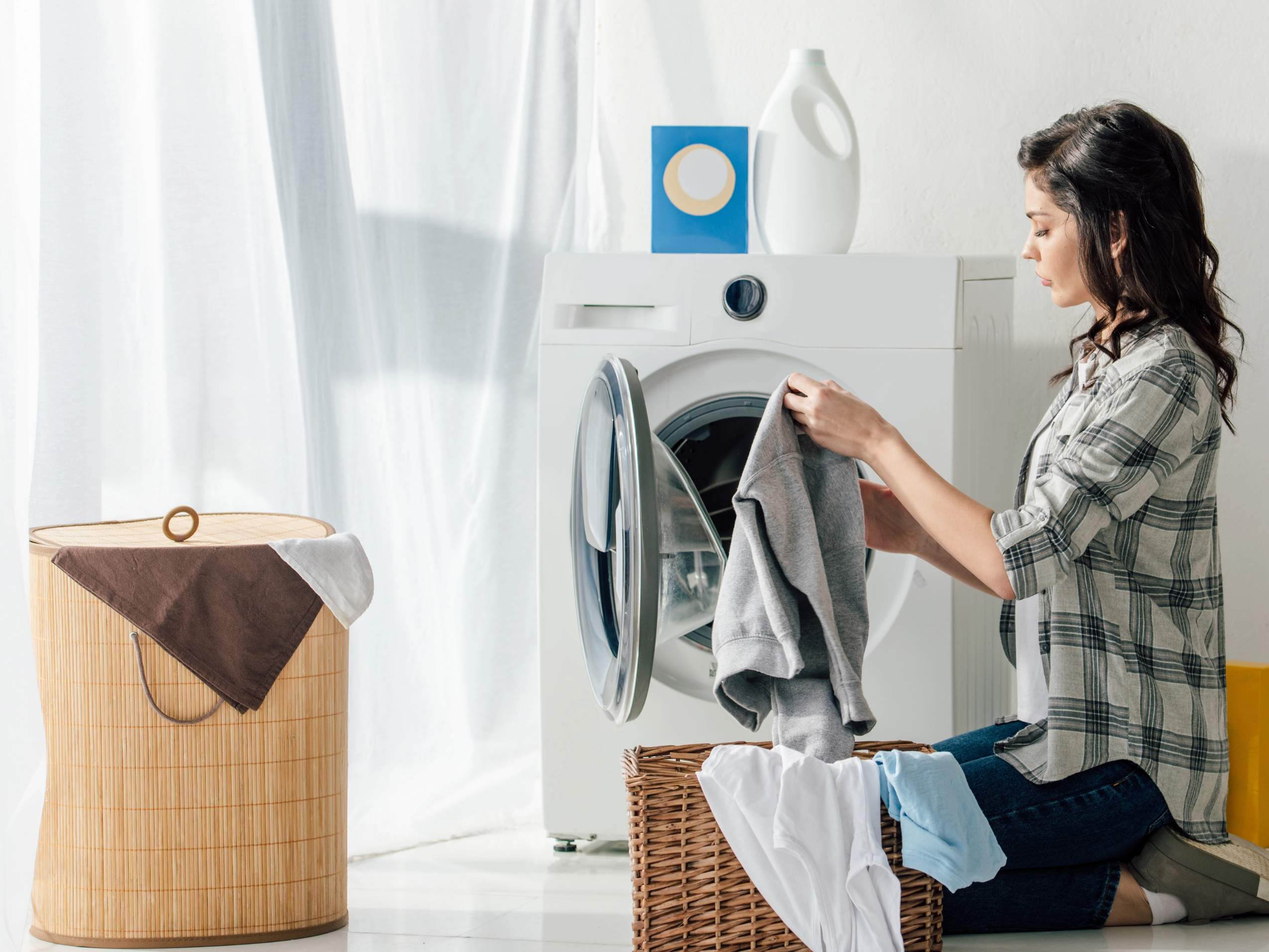
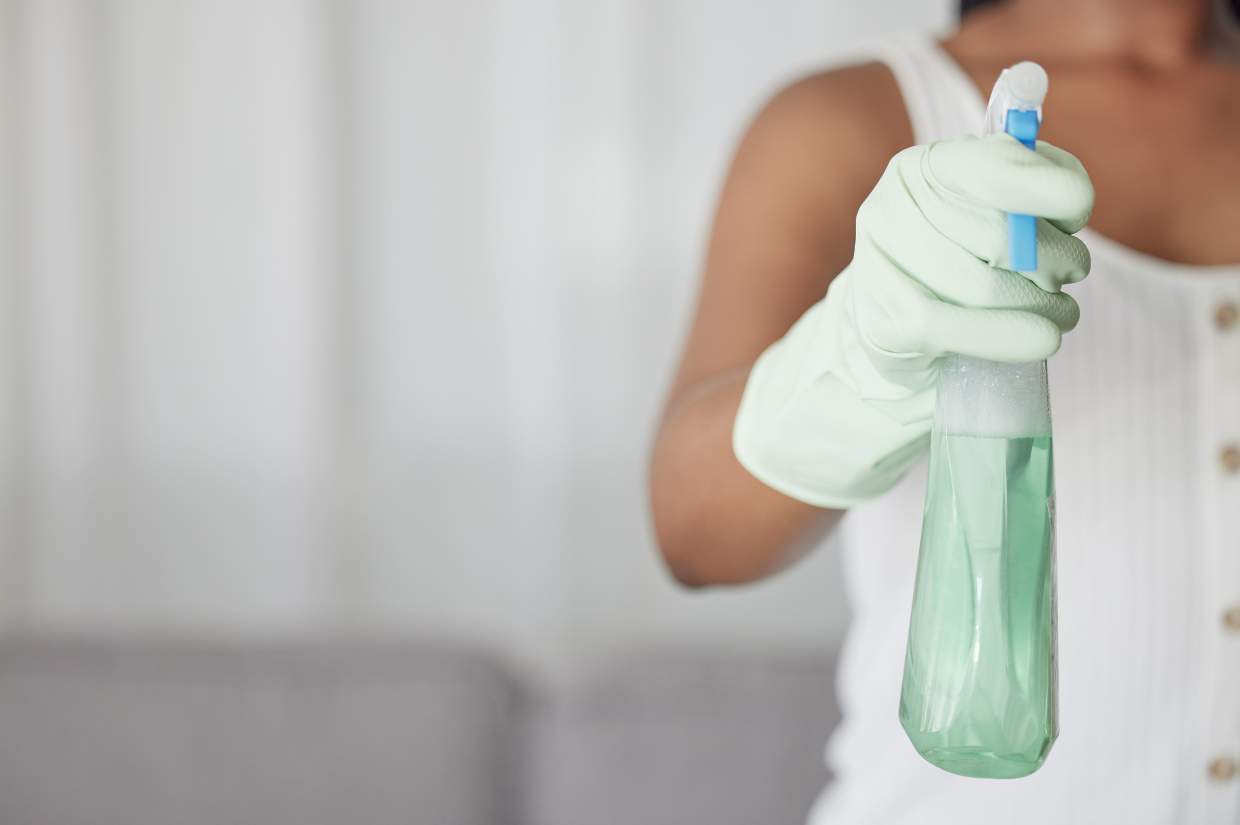
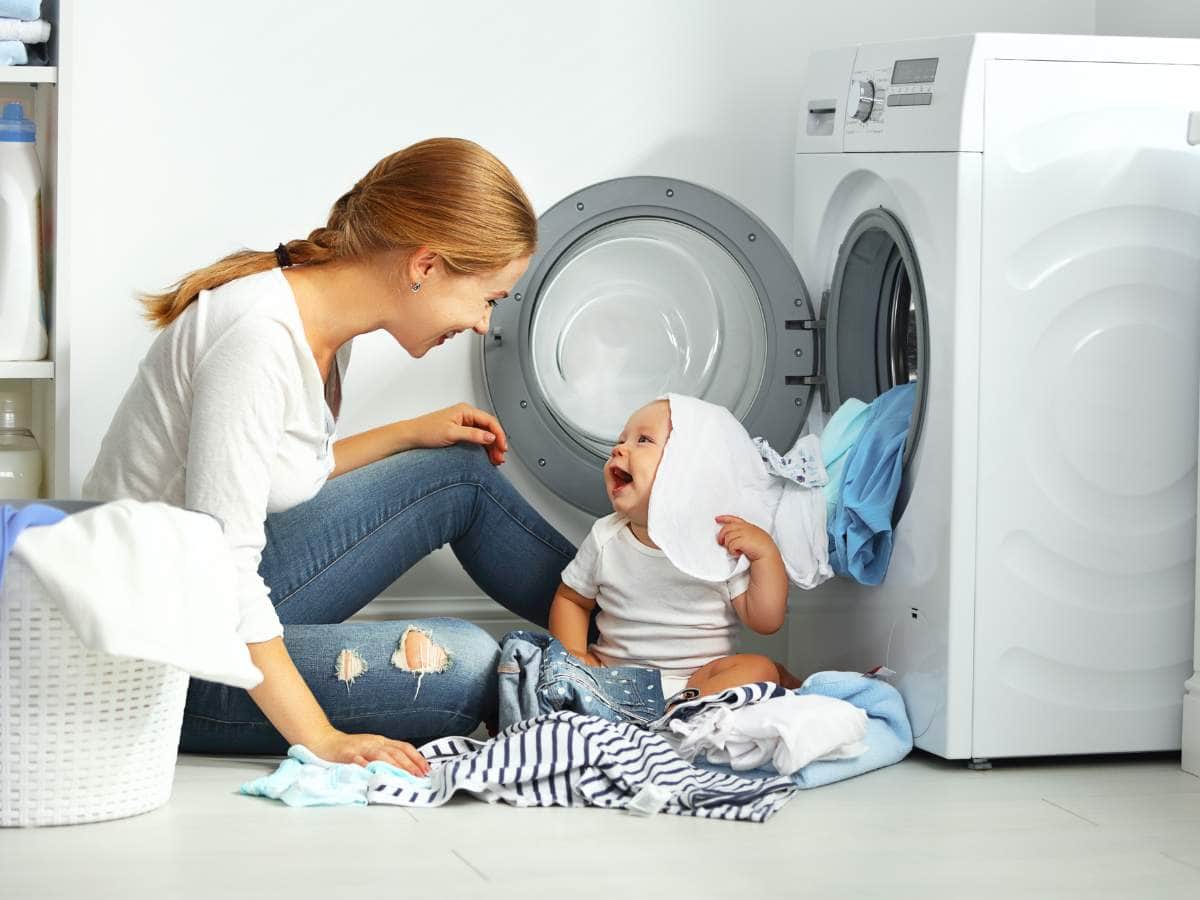
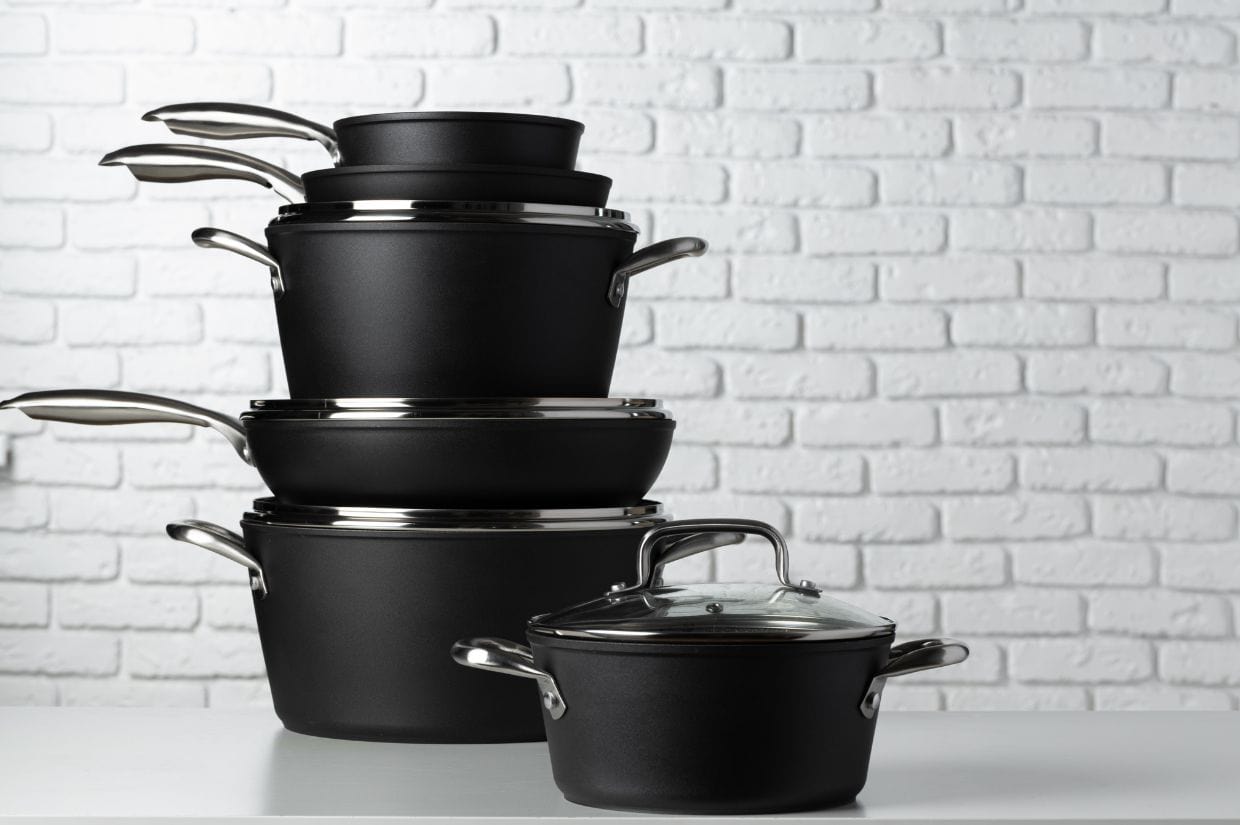
I have been using the Clean People dish soap and love it!
I’m so happy to hear that! Thank you for visiting the post.
Thank you for recommending non-toxic dish soap! It’s a relief to have a safer option for my family.
Thank you for visiting the post, Margaritta. I hope they work well for you and your family.